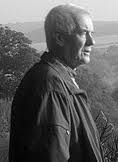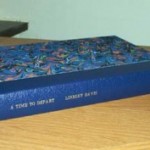Reginald Hill, Pictures of Perfection
£65.00
£50.70
22% off!
For more than forty brilliant years Reginald Hill became the British male crime writer that the others pointed to for the high level of skill, consistency and dazzling experimentation which he brought to crime fiction through the Dalziel and Pascoe series. Pictures of Perfection is the second of the four Dalziel & Pascoe novels issued by Scorpion Press, with a brilliant discussion of the merits of the series by Canadian crime writer Eric Wright.
In Stock: 3 available

 Reginald Hill was a northerner and after attending Oxford where he read English he taught at a school in Essex before moving to a Further Education College in Leeds, Yorkshire. When he set out to become a crime novelist with A Clubbable Woman (1970) Hill brought an ambition to do three significant things in this and his subsequent work: to re-work Falstaff and Prince Hal in his detective duo of Dalziel and Pascoe; to open up a commentary on the state of the social affairs in the country, in particular in northern England and on the cause of feminism; and thirdly, if that were not sufficient, to devise new perimeters for the detective/crime format by drawing on broader literary devises and forms. Over the course of more than forty brilliant years Reginald Hill became the British male crime writer that the others pointed to for the high level of skill, consistency and dazzling experimentation which he brought to crime fiction.
Reginald Hill was a northerner and after attending Oxford where he read English he taught at a school in Essex before moving to a Further Education College in Leeds, Yorkshire. When he set out to become a crime novelist with A Clubbable Woman (1970) Hill brought an ambition to do three significant things in this and his subsequent work: to re-work Falstaff and Prince Hal in his detective duo of Dalziel and Pascoe; to open up a commentary on the state of the social affairs in the country, in particular in northern England and on the cause of feminism; and thirdly, if that were not sufficient, to devise new perimeters for the detective/crime format by drawing on broader literary devises and forms. Over the course of more than forty brilliant years Reginald Hill became the British male crime writer that the others pointed to for the high level of skill, consistency and dazzling experimentation which he brought to crime fiction.
Much has been written about Dalziel and Pascoe – what they represent and what they tell us about the changing world around us. Similarly, Pascoe’s wife Ellie tells us much about the changing role of women; while the homosexual Sergeant Wield allows us into another area of equality and changing social perceptions. The latter books in the series explore the limits of crime fiction. The BBC bought the rights to Dalziel and Pascoe and twelve series were shown between 1996 and 2007.
Plotline: High in the Mid-Yorkshire dales stand the pretty village of Enscombe, proud survivor of all that history has thrown at it. But now market forces mass at the gates and the old way of life seems to be changing fast. The Law can do little to stop the ever-growing crimes against tradition, but when a policeman goes missing DCI Pascoe gets worried. Andy Dalziel thinks he’s overreacting until the normally phlegmatic Sergeant Wield shows signs of changing his first impressions of village life. Over two eventful days a new pattern emerges, of lust and lying, of family feuds and ancient injuries, of frustrated desires and unbalanced minds. Finally, inevitably, everything comes to a bloody climax at the Squire’s Reckoning, when the villagers gather each Lady Day to feast and pay old debts ….and not even the presence of the Mid-Yorkshire CID trio can change the course of history…
 Pictures of Perfection (1994) is a delightful experimental crime novel inspired by Jane Austen. An amusing take on country life with multiple points of view, it for change, has Sergeant Wield centre-stage. This edition of 75 signed & numbered copies has Canadian crime writer and professor of Eric Wright with an appreciation of Reginald Hill. Its a brilliant discussion of the merits of the series.
Pictures of Perfection (1994) is a delightful experimental crime novel inspired by Jane Austen. An amusing take on country life with multiple points of view, it for change, has Sergeant Wield centre-stage. This edition of 75 signed & numbered copies has Canadian crime writer and professor of Eric Wright with an appreciation of Reginald Hill. Its a brilliant discussion of the merits of the series.

 Ian Rankin, Doors Open
Ian Rankin, Doors Open
 Lindsey Davis, Time to Depart
Lindsey Davis, Time to Depart

Rating by Wendy on Goodreads on June 6, 2012 :
This is a rather delightfully odd installment in the Dalziel and Pascoe series. I wouldn’t recommend it as anyone’s first exposure to the series, for the simple reason that it’s not at all representative of what the series is normally like, but if you’ve read a few of the more straightforward police procedurals in the series, and want to see Hill do something different, pick this up.
This book is clearly inspired by Jane Austen. Quotations from Austen’s works precede each chapter, and there is the requisite country squire with the estate entailed on the male line, and more marriage intrigues than you can shake a stick at. While it uses these elements from Austen to good plot effect, the flavor of Hill’s 1980s Yorkshire is sufficiently different from Austen’s milieu that it never feels like an Austen pastiche. This is not Pride and Prejudice and Policemen.
One of the things this book does particularly well is to subvert a trope of mystery novels: the seemingly idyllic rural village which turns out to have horrible violence and depravity lurking below the surface. Without getting into spoilers, let’s just say that there’s plenty of crime and plenty of mystery, and it all turns out a bit more innocent than the reader is initially led to believe. It’s a testament to Hill’s skill as a writer that I was delighted by this rather than finding it anti-climactic. I still haven’t quite figured out how he did it.
Dalziel and Pascoe rather take a back seat in this one – it’s mostly Sergeant Wield’s story, which is a big bonus for Wield fans. And really, is anyone not a Wield fan? Wendy on Goodreads
Rating by London Review of Books on June 6, 2012 :
“There was little to suggest, twenty-odd years ago, that Superintendent Andrew Dalziel and Sergeant Peter Pascoe would develop as they have, except Reginald Hill’s unusual and wise decision never to write consecutive novels about them. Their debut in A Clubbable Woman (1970) came eight years after Julian Symons had first pronounced the ‘detective story’ dead; as late as 1989 T.J. Binyon, in Murder Will Out, though finding them ‘an impressive, interesting team’, gave them only two sentences under the heading ‘Provincial Policemen’. One might as well say that Laurel and Hardy were provincial comics.
The growth of Andy Dalziel took place in metaphors of which Wodehouse would have been proud. At first only an ex-rugby player run to slabby fat, Dalziel began to burgeon in Ruling Passion (1973), after an antique dealer called Etherege, a diabetic arrested by Dalziel while injecting himself with insulin, made the substantial error of attempting a getaway by injecting Dalziel instead: ‘Etherege turned and ran, but his overfilled shop hindered rapid movement. The ceramic display case went crashing down as he blundered past. A grandfather clock by Barraclough fell into Dalziel’s path and chimed its last as the fat man trod carelessly on the disembowelled works.’ Two novels later Dalziel’s face has become ‘as heavy and ugly as a slag heap’, and his grin ‘like an advert for Jaws’; his scratching ‘the folds of his chin’ was like ‘the finger of God running along the Grand Canyon’, and his attempt to ‘roll his eyes heavenwards in … an expression of bewildered piety … came out more like a lecherous peek up God’s skirts’. By A Killing Kindness (1980) the metaphors themselves had begun to metamorphose:
Life was richly coloured for the fat man; full of villainy and vice, it was true, but with shifting shades and burning pigments, like Hogarthian scenes painted by Renoir.
Pascoe understood this. ‘He detects with his balls,’ he had once told Ellie gloomily.
Dalziel’s fatness also acquired a rival, in the ugliness of one Sergeant Wield, a highly efficient and seemingly remote man whose only known vice is an addiction to the novels of Rider Haggard: ‘Sergeant Wield’s ugliness was only skin deep, but that was deep enough’; ‘Wield … raised his eyebrows, producing an effect not unlike the vernal shifting of some Arctic landscape as the sun sets an ice-bound river flowing once more through a waste of snows.’ Wield’s unknown vice – or, in police force language, ‘liability’ – confessed to Dalziel in Child’s Play (1987), is that he is ‘uncompromisingly gay’. That a scene between two policemen, in which the ugliest man in Yorkshire confesses his gayness to the fattest man in Yorkshire, should have managed to be breathtaking and comic, and yet moving, obliging a reassessment of Wield’s remoteness and reserve as of Dalziel’s inferred prejudices, suggested the growth of Hill’s characters behind their Wodehousian metaphors; and since then Dalziel’s fatness has reached an extremity in Bones & Silence (1990), which casts him as God in a town-processional performance of the mystery plays.
The growth of Peter Pascoe, accompanied by his slow promotion to Chief Inspector, was a very different affair. In An Advancement of Learning he met, in Ruling Passion courted, and in An April Shroud married, his university and swinging-Sixties acquaintance, now a lecturer, Ellie Soper. Thinner, younger, and laconic where Dalziel is fatter, older and memorably rhetorical, Pascoe is also a graduate entrant to the police where Dalziel is an old-fashioned seat-of-the-very-broad-pants copper; and Ellie, one of the more interesting fictional portraits of a first-generation modern feminist, has a problem when she finds herself in love with and married to a rising policeman whose boss is Andy Dalziel. The strains of the miners’ strike, analysed in Under World (1988), are nearly too great for their marriage. … Extract (one third) from the review in the London Review of Books by John Lennard.